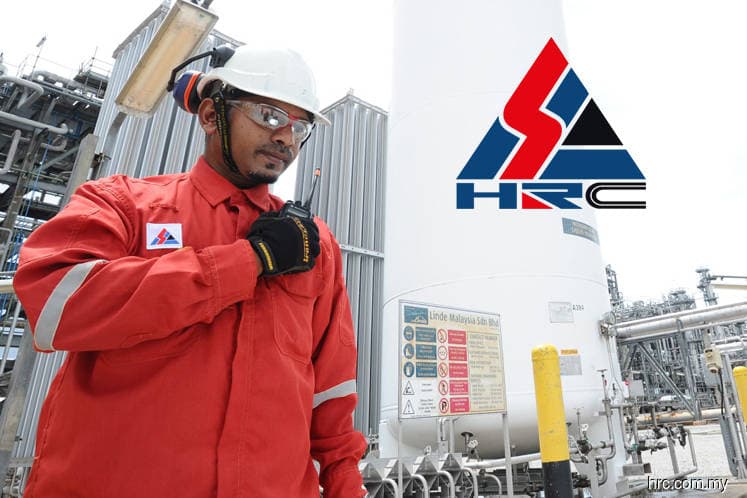
This article first appeared in The Edge Financial Daily on May 28, 2018
KUALA LUMPUR: Share prices in oil refiners in Malaysia continued facing pressure last week after weak first-quarter financial results confirmed fears that margins would be hit by higher oil prices which drive feedstock costs up.
Hengyuan Refining Co Bhd saw its shares decline seven sen or 0.98% to RM7.06 last Friday, having lost RM2.17 or 23.33% over a two-week period from RM9.30 on May 14. Year to date (YTD), Hengyuan has seen RM3.25 or 60.3% of its market capitalisation wiped out, leaving it with a market value of RM2.12 billion.
Meanwhile, Petron Malaysia Refining & Marketing Bhd lost RM1.54 billion or 40.94% of its market value YTD to stand at RM2.21 billion as at last Friday. The stock closed down three sen or 0.36% at RM8.18 per share last Friday.
Both refiners saw significant declines in net profit for their first quarter. Hengyuan’s net profit for its first quarter of financial year 2018 (1QFY18) fell 68.9% year-on-year (y-o-y) to RM86.81 million on a lower motor gas (mogas) crack spread although revenue rose 4.41% to RM3.06 billion on higher volume and average product prices.
As for Petron, its 1QFY18 net profit declined 33.55% to RM72.12 million y-o-y as the higher cost of crude oil squeezed refining margins. This was despite revenue for the quarter growing 6.67% to RM2.73 billion compared with a year ago, also due to growth in sales volume and higher oil prices.
Unfortunately, the outlook for earnings for both refiners remains hazy, as volatile crude oil prices prevent refiners from being able to be certain of margins and keeping them reliant on hedging practices.
Hengyuan has said that it sees margins stabilising in the second quarter as oil prices and consequently, the mogas crack spreads, are seen to have picked up over the last week. The group also sees a rebound in demand after a period of oversupply in 1QFY18, the management told reporters following the group’s annual general meeting last week.
However, futures of the Singapore Mogas 92 Unleaded (Platts) Brent Crack Spread are trading above US$8 (RM31.84) per barrel only up to July this year, according to data from US-based futures trading giant, CME Group. As at last Friday, the market was positioned for crack spreads to stay below that mark until March 2019, after having traded between US$8.79 and US$10.27 a barrel between November 2017 and January 2018. (see chart)
Mogas futures, however, may not be the best measure of the performance of Malaysian refineries, according to one industry observer. The analyst who declined to be named explained that it is the holding time of feedstock that most greatly affects the margins of refiners. Petron is believed to have a two-week holding time for its feedstock, which some said could be too long a time to keep costs responsive to changes in the oil price.
Hengyuan is also expecting to halt production for two-and-a-half months in the third quarter of 2018 to facilitate a routine Major Turnaround for its Negeri Sembilan refinery. It has already allocated RM700 million in capital expenditure (capex) to its Euro 4M and Atlas II projects for the next one to two years.
As for Petron, PublicInvest Research analyst Rosnani Rasul believes the company will soon see higher capex as it prepares for new Euro5 diesel requirements, which must be adopted by 2020.
“Investments have to be undertaken now, including the changing of refinery specifications and all related pump station fittings,” she said.
As a result, Rosnani has lowered her outlook on Petron to “neutral” and reduced her target price by 36.78% to RM8.61 from RM13.62.
However, RHB Research Institute analyst Lim Sin Kiat kept his “buy” call on the counter in a note last Friday, saying the weak quarterly earnings were not unexpected and uncertainty over margins meant that the group would refrain from investing in expanding capacity at the moment.
“We believe margin weaknesses have already been priced in,” Lim wrote, adding that the group’s earnings remain decent with stable sales volume growth.
Fuel price uncertainty another dampener
Another uncertainty refiners face is the proposed return of subsidy for fuel under the Pakatan Harapan government.
On May 16, Prime Minister Tun Dr Mahathir Mohamad announced that fuel prices would be fixed at the current RM2.20 per litre for RON95, RM2.47 per litre for RON97 and RM2.18 per litre for Euro 5 Diesel. These prices have remained unchanged for the past eight weeks.
It is still unclear whether or not the government will continue imposing a cap on the fuel price and more importantly, how it will fund this policy.
According to one industry analyst, refiners could feel the pinch on their margins if there is no compensation for higher input costs.
“It is hard to tell what the exact impact will be since we do not know whether the government will introduce a blanket or targeted subsidy,” said the analyst who declined to be named.
However RHB’s Lim opined that the government’s policy is unlikely to affect Petron’s 2018 bottom line.
“We believe the government will subsidise the difference between pump prices and Mean of Platt’s Singapore,” he said in his report.